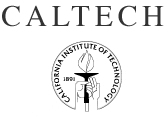Geneva, 20 April 2004 - An international team has set a new Internet2(R)2 Land Speed Record by transferring data across nearly 11,000 kilometres at an average rate of 6.25 gigabits per second (Gbps), nearly 10,000 times faster than a typical home broadband connection, from Los Angeles, USA, to Geneva, Switzerland. The Internet2 Land Speed Record (I2-LSR) is an open and ongoing competition for the highest-bandwidth, end-to-end networks.
CERN1 and Caltech send data at more than 6.25 Gbps across nearly 11'000 km
The mark of 68,431 terabit-metres per second, which used the same IPv4 protocols deployed throughout the global Internet, was set by a team consisting of members from CERN and the California Institute of Technology (Caltech). The same team previously set a new mark of four Gbps over the same distance using IPv6, the next generation of Internet protocols.
"This new record is of great importance to the future of data intensive Grids such as the Large Hadron Collider (LHC) Computing Grid that CERN, together with its LHC partners around the world, is actively deploying. We are hopeful that new IPv4 and IPv6 Internet2 Land Speed Records will be established this year, bringing us closer to 100 petabit-metres per second marks, or nominal 10 gigabits per second throughputs," said Olivier Martin, Head of External Networking at CERN and Manager of the European Union DataTAG project.
"The team from Caltech and CERN has again set a new measure for Internet performance," said Rich Carlson, Chair of the I2-LSR judging panel. "By pushing the envelope of end-to-end networking, their efforts demonstrate new possibilities for enabling research, teaching, and learning using advanced Internet technology."
"This new multi-stream record is an important step towards next generation Grids where scientists are able to share an ensemble of links based on 10 gigabit per second optical wavelengths efficiently. Recent studies of network requirements by the US Department of Energy have shown that high energy physics, astrophysics, fusion energy, climatology, bioinformatics and other fields will require networks in the terabit per second range within the next decade. In order to realize this vision, we are now working on moving these developments into a production setting, and moving on together with our partners to higher speeds and hybrid networks involving both traditional links and dynamically switched optical paths," said Harvey Newman, Professor of Physics at Caltech, US CMS Collaboration Board Chair, and Chair of the Standing Committee on Inter-regional Connectivity of the International Committee on Future Accelerators.
The new mark was announced today in conjunction with the Spring 2004 Internet2 Member Meeting in Arlington, Virginia, USA. The most recent record was set with the support of Microsoft, S2io, Intel, Cisco Systems, HP, the U.S. National Science Foundation, the U.S. Department of Energy, the European Union through the DataTAG project, and the Corporation for Education Network Initiatives in California. More information can be found here.
Details of the winning entries, complete rules, submission guidelines and additional details are available here.
Contacts:
Olivier Martin, CERN, olivier.martin@cern.ch
Harvey Newman, Caltech, newman@hep.caltech.edu
Michelle Pollak, Internet2, mpollak@internet2.edu, +1-202-285-4590
2. Led by more than 200 U.S. universities working with industry and government, Internet2 develops and deploys advanced network applications and technologies for research and higher education, accelerating the creation of tomorrow's Internet. Internet2 recreates the partnerships among academia, industry, and government that helped foster today's Internet in its infancy.

